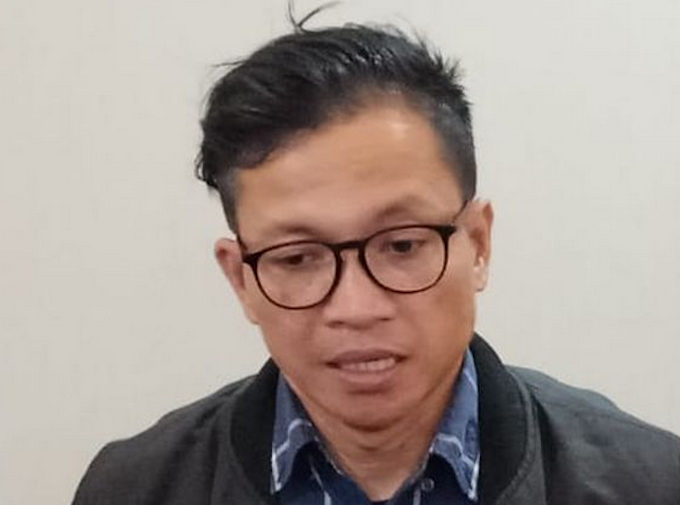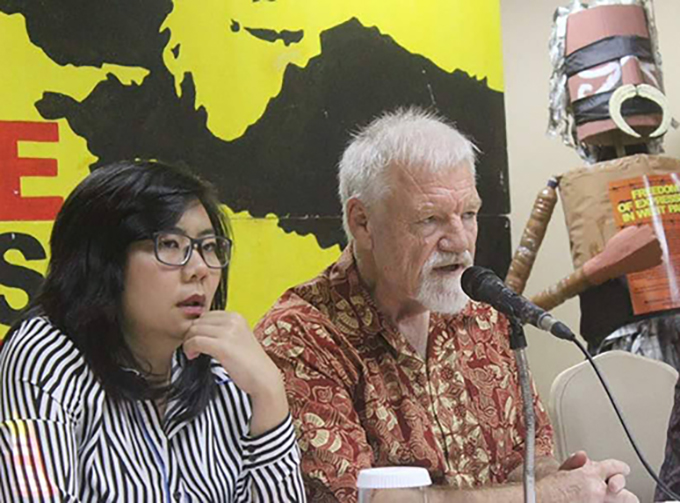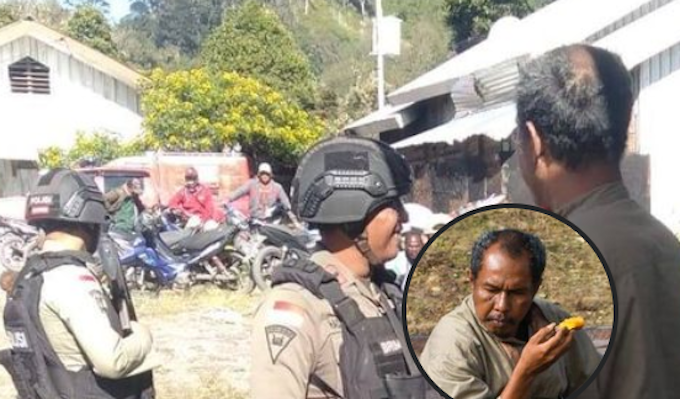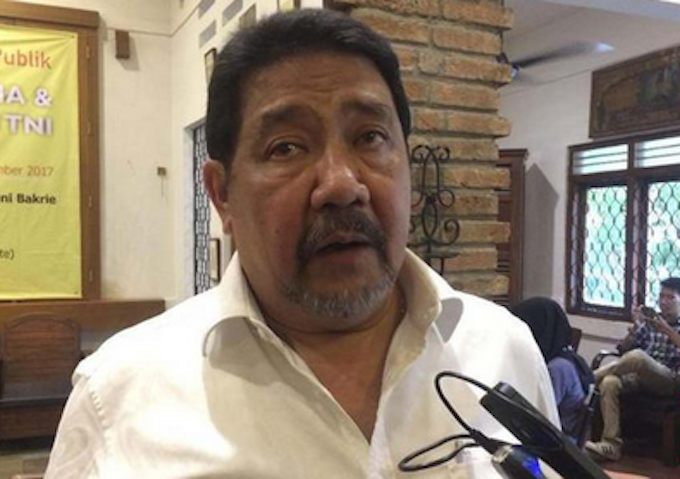ANALYSIS: By Yamin Kogoya
The Indonesian government has officially labelled the OPM (Organisasi Papua Merdeka) Free Papuan Movement and its military wing, the TPNPB (West Papua National Liberation Army) as a terrorist group.
This came about at the height of a string of shootings and killings – which have been taking place in recent months in Papua’s highlands – that led to the killing of a senior Indonesian intelligence officer, General I Gusti Putu Danny Karya Nugraha, last week.
In response, Indonesian President Joko Widodo has ordered a crackdown on the armed resistance group OPM – TPNPB.
- READ MORE: Branding armed Papuan resistance as ‘terrorists’ angers rights groups, sparks media warning
- Papua rebels declared terrorists following clashes
- Internet cut in Papua as military operations intensify
A few days later, Mohammad Mahfud MD, the coordinating Minister for Political, Legal and Security Affairs, declared that those in Papua (presumably the OPM – TPNPB) who commit crimes would be classified as “terrorists”.
The People’s Consultative Assembly (MPR) Speaker in Jakarta, Bambang Soesatyo, stressed this issue by saying, “I demand that the government deploy their security forces at full force to exterminate the armed criminal groups (KKP) in Papua which have taken lives.
“Just eradicate them. Let’s talk about human rights later.”
This announcement and such statements have caused a reaction among Indonesian leaders and civil society groups.
Opportunity for resistance
Police observer Irjen Pol Purn Sisno Adiwinoto warned that labelling Papuan independence groups as “terrorists” would not solve problems in West Papua.
“If anything, this might just be the opportunity for resistance groups to get the United States involved,” said Adiwinoto.
Philip Situmorang, public relations officer from the Fellowship of Churches in Indonesia (PGI), asked the government to be careful of their decision to label the armed criminal group (KKB) as a terrorist group.
The church groups have warned that Jakarta should choose a different approach to Papua.
Labelling Papua as a terrorist will psychologically impact on the Papuan community, which might instil fear, distrust, and hatred among communities in the land of Papua.
West Papua is a region known for the international media blackout. This makes it challenging to allow independent media or human rights agencies to investigate the killings.
The country’s justice system often fails to provide fair, transparent justice for the alleged perpetrators.
Governor Enembe concerned
The governor of Papua province, Lukas Enembe, also expressed his concern about the central government announcement.
The statement released from the governor’s office stated that this labelling would affect the Papuan population, not just OPM – TPNPB. Papuans in West Papua and abroad will be stigmatised through the lens of the word terrorist.
Hence, the governor asked for the central government to review its decision comprehensively.
One of the seven points he made was that he strongly suggested the central government check with the United Nations about the decision.
Benny Wenda, the leader of the United Liberation Movement for West Papua, also condemned Jokowi’s announcement.
“My questions to the president of Indonesia are: Who invaded our country in the first place? Who has killed over 500,000 men, women, and children? Who has displaced over 50,000 civilians since December 2018, leading to the deaths of hundreds of more people?
An illegal invasion and occupation is a criminal act. Genocide is a terrorist act. Resistance to these are legitimate and necessary,” Benny Wenda said.
Harmful policy for Papuans
These concerns are expressed in recognition that, after 60 years, Jakarta insists on introducing a policy that will harm the Papuan people.
Fifty-eight years ago, in May 1963, was the landing of Indonesian troops after the Western power gave them the green light during the controversial “New York Agreement” – the agreement in which Papuans were not invited.
The real terror in Papua began from that day.
Jakarta invents words and phrases and decides their definitions to control Papuan people.
The Indonesian government has used many names and phrases to legitimise their military operations in the land of Papua.
Between 1964–1966, leading up to the Act of Free Choice in 1969 (which Papuans consider a sham, or an “Act of No Choice”), army general Kartidjo Sastrodinoto led an operation called “Operasi Wisnurmurti III and IV”.
The years between 1977-1982, a general named Imam Munandar led another operation named “Operasi Kikis”, followed by “Operasi Sapu Bersih”.
The “Operasi Penyisiran” was another name given for 2002-2004 operations in Wamena, Papua’s highland town.
Many military operations
These are just a few of many, both visible and invisible, military operations in West Papua.
These terminologies carry specific energy and command and manifest different state behaviours that target Papuan lives; they mean something like “wipe-out, clean, straighten, remove, taming the wild forest, restoring order” etc.
They are not the languages of healing and reconciliation but of war and elimination.
Elites in Jakarta have convinced themselves to believe that there is a monster in the land of Papua and that the beast needs to be eliminated. This paranoid way of thinking is akin to saying all non-black immigrants in the land of Papua are scary, so we should label them as demons and kill them or labelling all Muslims as terrorists because they are following the religion of Islam.
The Papua governor and civil society groups are concerned that every Papuan will be stigmatised as a terrorist, regardless of whether they are a member of OPM – TPNPB or not.
This labelling is not just to harm OPM – TPNPB but is a direct assault on Papuan history, language, livelihood, and aspirations for a better world, pushed by Papuan resistance groups.
One of the main concerns that have been raised within the resistance movements is that the Indonesian government is labelling West Papua national liberation as a terrorist to criminalise the movement and depict them as radical extremists in the eyes of international communities.
This is an old colonial game, where blaming the victims makes it difficult for them to report the crimes, allowing the perpetrators to avoid being held accountable for their actions.
Metro TV interview
In the media interview by Metrotvnews on April 30, Mohammad Mahfud MD stated they must contain the situation in West Papua before controlling the situation outside of Papua, inferring that influencing public opinion in the international community must begin by creating a terrorist of West Papua.
The central government in Jakarta will use the word “terrorist” to convince the international community not to support these activist groups in West Papua. It intends to damage the integrity and reputation of the West Papua liberation movement, which has been gaining a lot of sympathy from international communities and institutions such as ACP (Africa Caribbean Pacific group of states), MSG (Melanesian Spearhead Group), PIF (Pacific Islands Forum) and Human Rights Council in Geneva.
Many described the announcement as a desperate attempt to halt the region’s independence movement. David Robie wrote that this is Jakarta’s “worst ever” policy on West Papua, as reported by Asia Pacific Report last week on April 30.
President Jokowi’s welfare approach and his 12 visits to Papua turned out to be a mere trojan horse. He and his government are not delivering welfare to Papuan people at all – they are creating terrorists in West Papua to justify war against the Papuan people.
How will they distinguish and catch this monster, which they have called “terrorist” in Papua? Or are they going to create one that looks like a terrorist?
Is OPM a terrorist group or a legendary saviour in Papuan’s independence imagination?
In the 1980s, when I was growing up in my highland village of Papua from the ages of 8-12, I often heard the name OPM. At the time, the name sounded like it had magical power. I still associate the name OPM with that story.
OPM ‘has secret power’
At that time, I was told that OPM has a secret power that controls weather patterns. My family said that if you see heavy rain or thick clouds covering the mountains, then it is a sign that OPM is near or OPM created the bad weather to confuse their enemies.
This kind of story made me very curious about the name OPM.
I then asked my elders, who were OPM’s enemy and whether OPM were human or forest spirits? They would say to me that OPM were not forest spirits. They were human beings just like us, but they couldn’t divulge their identities to keep their family members safe from interrogation if their true identities were revealed to Indonesian soldiers.
According to the village story, OPM have the power of nature, and they can obscure the sight of the Indonesian soldiers and make them crazy. At the time, I was astonished by these stories.
With these fascinations, I continued to ask if the OPM was something that I should fear.
They would tell me, “child, you should not be afraid of the OPM, because the OPM will protect you, and they will expel the Indonesian soldiers who were roaming around here, killing and raping women”.
I grew up with these types of stories, and I am sure that many Papuans have similar stories to tell about what the name of OPM means to them.
Hope for a better world
OPM carries the spirit that keeps the hope of a better world (free from Indonesia) alive. That’s how I understand it. That hope, in Papuans’ imagination, is political independence from Indonesia.
To be OPM is to be a proud Papuan, and to be Papuan is to be proud to be OPM because, in the minds of Papuans, OPM represents hope, freedom, salvation, healing, and reconciliation.
As legend has it in the island of Biak, during the early 1940s, before Indonesia got their Independence from the Dutch, it was the spirit of the Morning Star that healed the legends Manarmakeri and Angganitha.
Papuan people in the Biak island were already dreaming of a new world – a world free from terror, with the spirit of the Morning Star before Indonesia gained its independence in 1945.
OPM stands to manifest that utopian dream of a Papuan free state as sovereign people. This fear of manifesting Papuan statehood drives Jakarta’s reckless policies toward West Papua.
If Papuans were asked, without any intimidation or bribery, which spirit do they trust and believe in, the OPM or Indonesia security forces, I am confident that they would choose the spirit and the legend of OPM because that spirit stands for freedom and salvation.
The word “terrorist” is the deadliest weapon that Indonesia has invented to kill Papuan people
Labelling is dangerous
This reckless labelling is dangerous, as already expressed by Governor Lukas and other civil society groups, because all Papuan people will suffer, not just OPM. Papuan people are already suffering in every aspect of their lives, this labelling will add more under the Indonesian rule and western capitalist world order.
It is unfortunate that Indonesia is one of the most religious places, and yet unable to uphold its own religious morals and ethical teachings, as inscribed in their constitutional pillars: Ketuhanan Yang Maha Esa (Belief in the Almighty God) and Kemanusiaan Yang Adil dan Beradab (Just and Civilised Humanity). Do the Indonesian ruling elites still believe in these words?
With all the human and material resources being spent on securing West Papua, the question we need to be asking is, ‘why is Jakarta still unable to catch all the perpetrators and bring them to face justice?’
If the elites in Jakarta believe with sincerity in promoting the slogan “wonderful Indonesia” on the world’s stage, then the way they approach Papua needs to change.
Papua will always be like a pebble in Indonesia’s shoe – it must be resolved in a humane manner if the “wonderful Indonesia dream” is to be fully realised. Turning West Papua into a terrorist and justifying it to wage war against the Papuan people is not the way to achieve peace in the land of Papua.
- Yamin Kogoya is a West Papuan academic who has a Master of Applied Anthropology and Participatory Development from the Australian National University who contributes to Asia Pacific Report. From the Lani tribe in the Papuan Highlands, he is currently living in the Gold Coast, Queensland, Australia.
- Other Yamin Kogoya articles
This post was originally published on Asia Pacific Report.







 Tim
Tim Buchanan
Buchanan (@Tbuch2)
(@Tbuch2)